 Petzlover
PetzloverBoth Pomsky and Walker Hound are originated from United States. Pomsky may grow 29 cm / 11 inches shorter than Walker Hound. Pomsky may weigh 18 kg / 39 pounds lesser than Walker Hound. Both Pomsky and Walker Hound has almost same life span. Both Pomsky and Walker Hound has almost same litter size. Pomsky requires Moderate Maintenance. But Walker Hound requires Low Maintenance
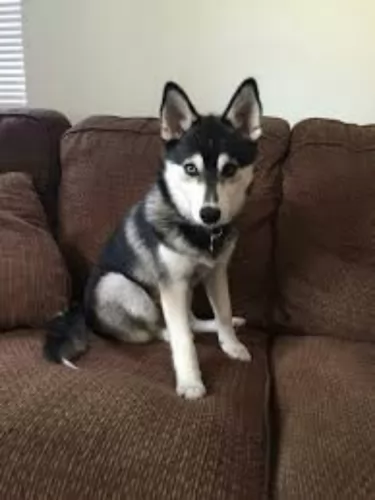 Pomskies are such cute little wolf-like dogs, you just wish they’d been around much sooner.
Pomskies are such cute little wolf-like dogs, you just wish they’d been around much sooner.
They’re a fairly new addition to the breed of designer dogs, believed to have originated in 2009, in the United States. Today they are a well known, and sought after designer dog breed.
They are a cross between the Pomeranian and a Siberian Husky. As a designer dog breeds, the Pomeranian Husky isn’t recognized by the American Kennel Club. There is a Pomsky Club of America and they are wanting to get the breed registered.
The Walker Hound is actually two different breeds today both descendant from the original Walker. They are the Running Walker Hound and the Treeing Walker Coonhound and mark their ancestors as the American Foxhound and the English Foxhound. The Treeing Walker is a breed developed in the United States when a “Tennessee Lead Dog” was crossed with a Walker Hound. The Running Walker is considered a Foxhound not a coonhound. They Running Walker does not have a treeing instinct and is not as common in hunting in the southern US as the Treeing Walker Coonhound.
In 1945 the United Kennel Club (UKC) recognized the Treeing Walker Coonhound and by the AKC (American Kennel Club) in 2012. They were developed to hunt and “tree” racoons – so the coonhound label. They also are capable of hunting bears, deer, bobcats and mountain lions. Their baying voice is distinctive that even at a great distance a hunter can recognize the voice of his dog.
Both types of Walkers are calm, gentle and friendly family dogs. The original Walker Hounds were bred in Kentucky by John Walker and George Maupin. The Walker Coonhound, Treeing was recognized as part of the English Coonhound breed by the UKC in 1905. In 1945, they were then recognized as their own breed by the UKC.
They have become the most popular hound competitor in coon hunt competitions. They are known for speed and an ability to catch more racoons in a shorter period of time than any other coonhound. They also tree squirrels, cougars. Opossums, roof rats and skunks.
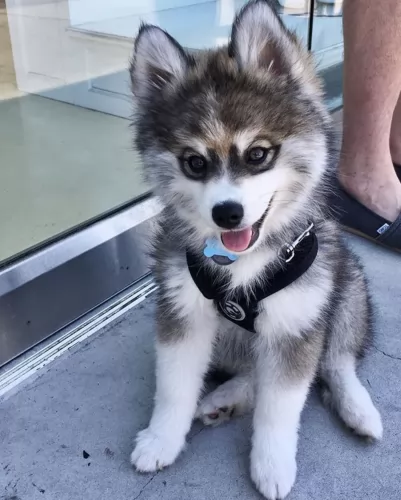 Just like most hybrid breeds, the Pomsky can have mixed looks – taking more after one or the other dog.
Just like most hybrid breeds, the Pomsky can have mixed looks – taking more after one or the other dog.
They can stand between 25 to 40cm in height and weigh between 9 to 14kg. The dog looks like a small Husky, but even so, in one litter, there can be some variety between the puppies in terms of looks and temperament.
The dogs have a soft double coat that keeps the dog comfortable in icy temperatures. Coat colors vary and the coats can be grey and white, a reddish brown or even solid white.
You’ll find your Pomsky to be amusing and entertaining as he is quite clownish.He fits quite easily into life in the city or in the countryside.
Wherever you are, part of being a responsible dog owner includes taking him for walks and seeing that he gets enough exercise. He is a vocal dog, which might not be good in the city if you live near to your neighbors as he can howl and whine quite a bit.
Training and socialization will be important for him, particularly as he tends to be nervous around strangers. Socialization makes him obedient, well balanced an well behaved.
They are playful, loving dogs and intelligent too so you won’t have trouble getting him trained and socialized.
This working dog is tall and lean with the males being somewhat larger than the females. They have broad skulls and hanging, long ears with a long muzzle. They have a soft expression in their dark eyes, straight legs and compact cat-like feet. The coat is smooth, glossy and fine. The traditional color is a tricolor or a bi-color in white with black and tan markings. The bicolors are white and tan or white and black. Their speed comes from the long , powerful and muscled legs and hindquarters along with the frame that is lean and streamlined.
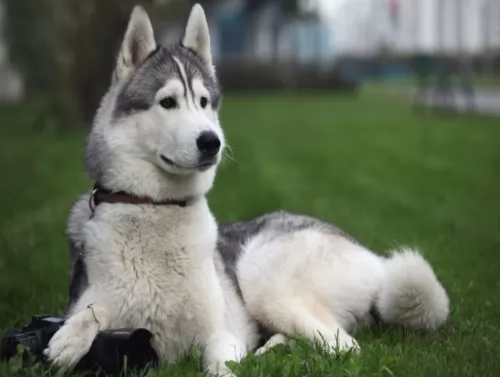 A Pomsky is such a great pet to have. They’re intelligent dogs and respond well to training and socialization.
A Pomsky is such a great pet to have. They’re intelligent dogs and respond well to training and socialization.
They’re playful, confident and full of life and want nothing more than to be an active member of the family. He will need quite a bit of exercise and will love playing with the children in the home.
Provide him with love and care, and you can count him in as a faithful, loving pet and companion.
2.Special talents Walkers are capable of covering a lot of ground in a hurry. Speed and treeing instinct.
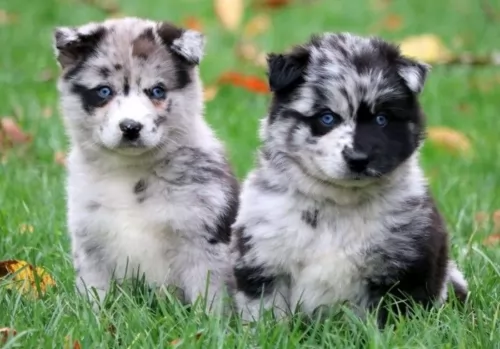 Your Husky and Pomeranian mix promises to be resilient in the face of illness if you feed him well and exercise him. Still, no dog is immune from the many common health issues there are that plague dogs.
Your Husky and Pomeranian mix promises to be resilient in the face of illness if you feed him well and exercise him. Still, no dog is immune from the many common health issues there are that plague dogs.
As a responsible dog owner, as soon as your pet is showing signs of being sick and in distress, you need to get him to the vet. Some common dog illnesses include bloat, cancer, skin allergies and hip dysplasia.
Bloat, also known as Gastric Dilatation and Volvulus:
This can be deadly for dogs, and when you see your dog’s stomach swollen and hard and he is restless and drooling, vet attention is required immediately.
The stomach is twisted and filled with gas that can’t escape. Pressure within the stomach puts pressure on other body organs and this can result in blood flow to the heart being stopped.
There are a number of theories as to why bloat occurs, but it is better to give your pet a couple of smaller meals a day instead of one large one which he gobbles up too quickly.
Its tempting to give your dog a piece of chocolate when he looks so pleadingly at you, but chocolate as well as other human foods can be toxic for your dog.
Chocolate has ingredients which are safe for human consumption but which can lead to a host of medical complications for your dog. Your dog may vomit, have rapid breathing, an increased heart rate and even seizures – it’s just not worth taking the chance.
The Treeing Walker Coonhound is a fairly healthy breed needing to watch out for accidents on the hunting trail from shrubs, brush and tree limbs. They can become tick infested if you are not careful, especially in their long ears that flop on the side of their head. Clean their ears weekly and check them after every run in the woods.
They are also prone to hip dysplasia and eye issues. Hip dysplasia can cause lameness and/or arthritis. Before to keep the ear clear of debris and wax to avoid ear infections.
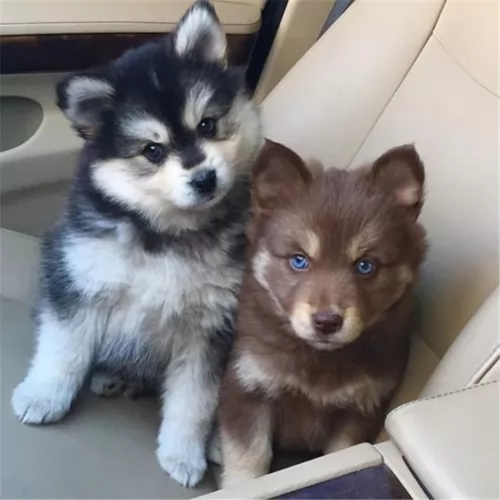 The thick coat sheds quite a bit so it will need to be brushed at least twice a week to keep it vibrant and shiny.
The thick coat sheds quite a bit so it will need to be brushed at least twice a week to keep it vibrant and shiny.
Nails will need to be trimmed regularly if they don’t wear down themselves. You will also need to check your dogs teeth when you brush him. A bad tooth can cause ill health that can damage the heart and kidney.
Your Pomsky is an energetic dog that requires a lot of exercise. While he will love a walk every day, they want more than that – loving to play ball- and frisbee games with all that energy.
Pomsky owners can’t be couch potatoes as this energetic dog will become bored, frustrated and destructive, and then an irresponsible owner blames the dog.
With so much energy, your Pomsky is going to require high quality food that ensures his energy levels remain high. Commercially manufactured dog foods can be wonderfully convenient, and the best ones can be excellent for your pet, with the right balance of vitamins and minerals.
High quality dry kibble can get a bit boring so add in some home-made food to the dry kibble to make it more interesting. Dogs thrive on simplicity, so boiled chicken, sweet potatoes, brown rice or pasta, carrots and spinach will be 100% sufficient for him. This can be chopped up into his dry kibble occasionally as a welcome treat.
Also, your pet will thrive on a bit of raw meat added in from time to time. Make sure he is never without a constant supply of fresh, cool water.
1Feeding the puppy – don’t overfeed. Feed quality medium size breed 3-4 small meals per day
2.Feeding the adult – don’t overfeed. Feed quality medium size breed 1-2 small meals per day
running or hiking companion. long daily walks at a minimum. He loves to run and play with his family. Hunting and “coon trials” are his specialty and best ways to get exercise. He needs to run